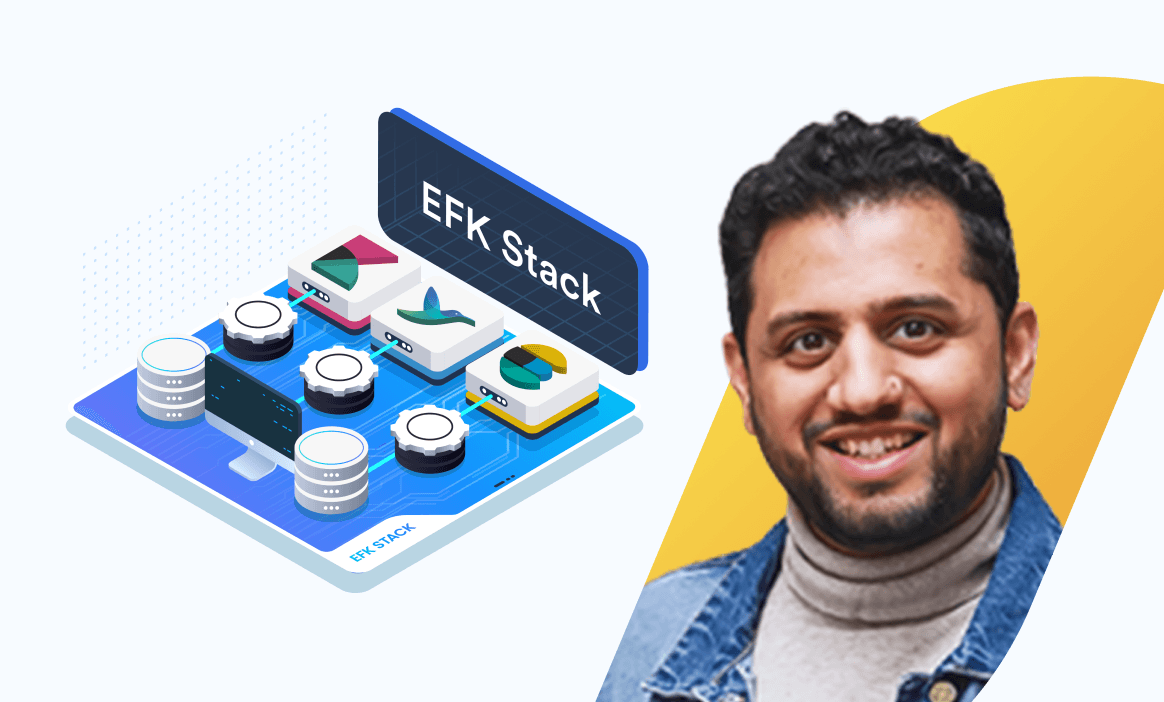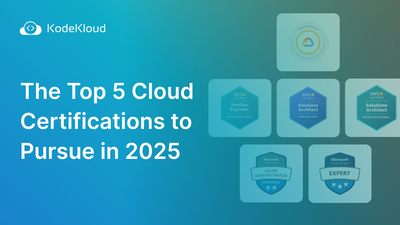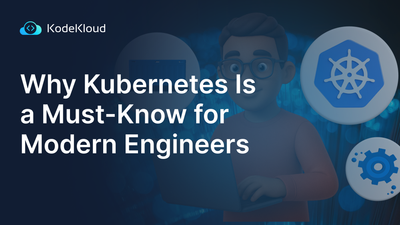DevOps is More Than Just a Job Title
Every company needs DevOps to prevent downtime, reduce deployment failures, and streamline software releases. With businesses racing toward cloud-native applications, microservices, and AI-driven automation, the role of DevOps has become more critical than ever.
But what does an actual day look like? This blog walks you through the routine tasks, challenges, and responsibilities of a DevOps engineer, offering a realistic picture of the job.
What Does a DevOps Engineer Actually Do?
Core Responsibilities of a DevOps Engineer
Infrastructure Management – Handling cloud resources, networking, and provisioning.
Security & Compliance – Ensuring software and infrastructure adhere to best security practices.
Monitoring & Incident Response – Identifying and fixing issues before users notice them.
Collaboration – Acting as a bridge between developers, security teams, and operations.
A DevOps Engineer’s Daily Routine: Expect the Unexpected
While the time frame for tasks may vary, these are the core activities DevOps engineers typically perform throughout the day.
1. Morning: Kicking Off the Day
Checking Monitoring Tools and Alerts
The first thing DevOps engineers do is check dashboards, logs, and monitoring alerts to ensure the system is healthy. Tools like Grafana, Prometheus, ELK Stack, or Datadog help track server performance, error rates, and latency issues.If any critical issues occurred overnight, they are immediately escalated for troubleshooting. For example:
- A failed database connection affecting user transactions.
- A spike in CPU usage causing slow application performance.
- Security alerts indicating unauthorized access attempts.
Reviewing Slack or Incident Reports
Most teams use Slack, Microsoft Teams, or PagerDuty for incident notifications. A quick scan of messages helps identify urgent issues that need immediate attention.If a CI/CD pipeline failed overnight, fixing it becomes the top priority to prevent deployment delays.
Daily Stand-Up Meeting
DevOps engineers don’t work in isolation. They attend stand-up meetings with:- Developers (to discuss deployment issues).
- QA teams (to resolve testing failures).
- Security engineers (to enforce compliance policies).
2. Mid-Morning: Automation, CI/CD, and Infrastructure Management
Automating Repetitive Tasks
Automation is the lifeblood of DevOps. Engineers write scripts to:- Deploy applications with zero downtime.
- Auto-scale infrastructure based on demand.
- Rotate logs and clean up old data to free up storage.
Managing CI/CD Pipelines
CI/CD pipelines ensure that:- Code is automatically built and tested after every commit.
- Deployments happen without human intervention.
- Any failures trigger rollback mechanisms to prevent downtime.
- Debug the failure.
- Fix the pipeline configuration.
- Re-run tests before approving the deployment.
Code Reviews and Security Checks
Before approving deployments, DevOps engineers review infrastructure code to ensure:- ✔ No hardcoded credentials in config files.
- ✔ Security policies (e.g., least privilege access) are enforced.
- ✔ Infrastructure as Code (IaC) follows best practices.
3. Afternoon: Deployments, Troubleshooting & Collaboration
Handling Deployments
Releasing software updates is not just about pressing a button. DevOps engineers must:- Schedule deployments at low-traffic hours to reduce risk.
- Monitor real-time logs to detect failures early.
- Roll back changes immediately if issues arise.
Troubleshooting System Issues
When things break, DevOps engineers:- Analyze logs and metrics to pinpoint failures.
- Simulate production issues in a staging environment.
- Apply quick fixes and patch vulnerabilities.
- 🚨 Database deadlocks slowing down transactions.
- 🚨 Server crashes due to memory leaks.
- 🚨 Failed SSL certificates causing security warnings.
Infrastructure as Code (IaC) Updates
Many companies manage infrastructure using Terraform, Ansible, or Pulumi. Engineers frequently:- Add new cloud instances to handle increased traffic.
- Modify Kubernetes clusters for better resource allocation.
- Secure cloud storage to prevent data leaks.
Collaborating with Developers & Security Teams
DevOps is not just about fixing pipelines—it’s about enabling teams. They help:- Developers optimize code for performance.
- Security teams enforce policies for compliance.
- Product teams understand infrastructure limitations.
4. Evening: Wrapping Up & Continuous Learning
Reviewing the Day’s Work
Before signing off, DevOps engineers:- ✔ Document system changes and configurations.
- ✔ Review any pending incidents before logging off.
- ✔ Set up alerts for overnight monitoring.
Learning New Tools & Best Practices
DevOps is constantly evolving. Engineers dedicate time to:- 📖 Reading tech blogs (e.g., CNCF, HashiCorp).
- 🛠 Testing new tools (e.g., OpenTelemetry, eBPF).
- 🤝 Attending DevOps meetups to network with peers.
Weekly Responsibilities: Beyond the Daily Routine
In addition to daily tasks, DevOps engineers handle long-term responsibilities that shape the organization’s infrastructure and processes.
2. Integrating New Tools & Technologies – The DevOps ecosystem is constantly evolving. Engineers evaluate and integrate new automation, monitoring, and security tools to improve efficiency.
3. Security & Compliance Checks – Ensuring infrastructure security is a continuous process. Engineers regularly:
- Conduct security audits and vulnerability assessments.
- Implement encryption, access controls, and best security practices.
- Ensure compliance with industry standards (e.g., ISO, GDPR).
- Quickly diagnose the issue.
- Deploy emergency fixes.
- Implement long-term solutions to prevent recurrence.
Essential Skills for a DevOps Engineer
To successfully handle the daily routine, manage responsibilities, and tackle unexpected challenges, a DevOps engineer needs a strong blend of technical and soft skills. It’s not just about knowing how to automate deployments or configure infrastructure—DevOps engineers must also collaborate with multiple teams, troubleshoot critical failures under pressure, and continuously adapt to new technologies.
While the tools and workflows may vary between companies, the core skills remain the same. Let’s break them down into two key areas:
Technical Skills: The Foundation of DevOps
Since DevOps is all about automation, cloud infrastructure, and continuous delivery, having a strong technical background is essential. These are the core technical skills that enable engineers to build, deploy, and maintain modern applications:
✔ Linux & Scripting – Since most cloud and container-based applications run on Linux, knowing Bash, Python, or Go is crucial for automation, system administration, and managing cloud workloads efficiently.

✔ CI/CD Pipelines – The backbone of modern DevOps. Jenkins, GitHub Actions, GitLab CI/CD, and ArgoCDensure that code is continuously tested and deployed with minimal manual effort.

✔ Cloud Platforms – DevOps engineers work extensively with AWS, Azure, or GCP to deploy, scale, and monitor infrastructure. Familiarity with cloud-native services like Kubernetes, serverless computing, and managed databases is essential.

✔ Infrastructure as Code (IaC) – Manual server provisioning is outdated. Terraform, Ansible, and CloudFormation allow DevOps engineers to define infrastructure using code, making deployments more scalable and consistent.

✔ Monitoring & Logging – Ensuring that systems remain healthy, stable, and performant requires tools like Prometheus, Grafana, ELK Stack (Elasticsearch, Logstash, Kibana), and Datadog to track performance metrics, detect anomalies, and resolve issues before they impact users.

Mastering these technical skills allows DevOps engineers to build automated workflows, minimize downtime, and ensure that infrastructure remains scalable and secure. However, success in DevOps isn’t just about mastering tools—it’s also about how well you collaborate, communicate, and solve problems under pressure.
However, success in DevOps isn’t just about mastering tools—it’s also about how well you collaborate, communicate, and solve problems under pressure.
Soft Skills: The Unsung Heroes of DevOps
DevOps engineers don’t work in isolation—they constantly interact with developers, testers, security teams, and business stakeholders. This means that, beyond technical expertise, they need to be great communicators, problem-solvers, and adaptable learners.
✔ Problem-Solving – When a production outage happens, a deployment fails, or a security vulnerability is detected, DevOps engineers must think quickly, analyze logs, and resolve issues under pressure.
✔ Collaboration – DevOps is all about breaking down silos between development, security, and operations. Engineers need to work closely with multiple teams, ensuring that applications are deployed efficiently and securely.
✔ Communication – A DevOps engineer needs to explain complex technical concepts in simple terms—whether it's guiding developers on best practices, updating executives on deployment risks, or helping non-technical teams understand infrastructure constraints.
✔ Adaptability – Technology changes rapidly in the DevOps world. Whether it’s a new cloud service, an updated CI/CD tool, or a shift in security best practices, engineers must continuously learn and adapt to stay ahead.
A DevOps engineer’s ability to combine technical knowledge with strong communication and collaboration skillsis what makes the difference between just managing deployments and truly optimizing the software delivery process.
You can check it out and enroll here.

Is DevOps the Right Career for You?
- If you enjoy automation, problem-solving, and cloud computing, DevOps is a great fit.
- Strong technical and collaboration skills are essential.
- DevOps is constantly evolving, making it an exciting and high-impact career.
If you're considering a career in DevOps, start building your skills in cloud computing, automation, and infrastructure management today! 🚀





















Discussion